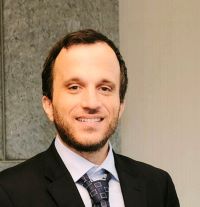
Algorithmic Scenario Generation As Quality Diversity Optimization
Speaker: Stefanos Nikolaidis, Ph.D., Assistant Professor of Computer Science at the University of Southern California
Date: 2023-11-09 12:30 pm
Location:
Technology Square Research Building (TSRB, 1st Floor Ballroom)
85 Fifth Street NW
Atlanta, GA 30308
ABSTRACT
The advent of state-of-the-art machine learning models and complex human-robot interaction systems has been accompanied by an increasing need for the efficient generation of diverse and challenging scenarios to test these systems.
In this talk, I will formalize the problem of algorithmic scenario generation and propose a general framework for searching, generating, and evaluating simulated scenarios. I will first discuss our fundamental advances in quality diversity optimization algorithms that search the continuous, multi-dimensional scenario space. I will then show how integrating quality diversity algorithms with generative models allows for the generation of realistic scenarios. Instead of performing expensive evaluations for every single generated scenario in a robotic simulator, I will discuss combining the scenario search with the self-supervised learning of surrogate models that predict human-robot interaction outcomes. Finally, I will introduce the notion of 'soft archives' for registering the generated scenarios, which significantly improves performance in hard-to-optimize domains.
While the talk will focus on scenario generation, the proposed framework is general and can be applied to a wide range of applications where diverse datasets are desirable. I will conclude the talk by discussing applications in searching for diverse faces, robot locomotion policies, and warehouse layouts.
BIO
Stefanos Nikolaidis is an Assistant Professor of Computer Science and the Fluor Early Career Chair at the University of Southern California, where he leads the Interactive and Collaborative Autonomous Robotics Systems (ICAROS) lab. His research draws upon expertise on artificial intelligence, procedural content generation and quality diversity optimization and leads to end-to-end solutions that enable deployed robotic systems to act robustly when interacting with people in practical, real-world applications. Stefanos completed his PhD at Carnegie Mellon's Robotics Institute and received an MS from MIT, a MEng from the University of Tokyo and a BS from the National Technical University of Athens. In 2022, Stefanos was the sole recipient of the Agilent Early Career Professor Award for his work on human-robot collaboration, as well as the recipient of an NSF CAREER award for his work on “Enhancing the Robustness of Human-Robot Interactions via Automatic Scenario Generation.” His research has also been recognized with best paper awards and nominations from the IEEE/ACM International Conference on Human-Robot Interaction, The Genetic and Evolutionary Computation Conference, the International Conference on Intelligent Robots and Systems, and the International Symposium on Robotics.



